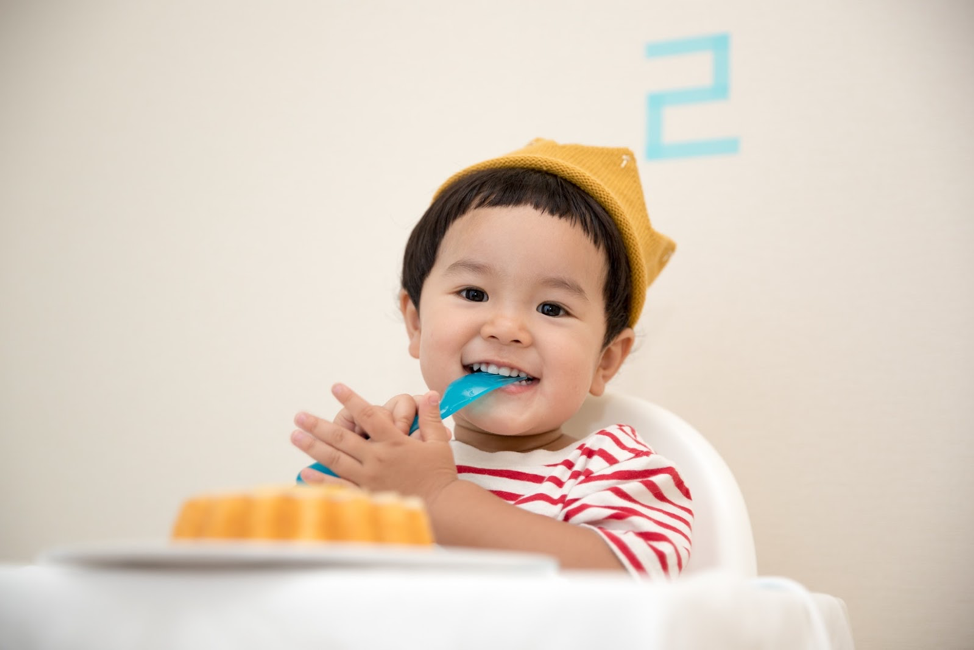Cochlear implants have opened doors to hearing for children that did not exist previously. The results can be miraculous, but they require hard work. It’s important to realize the unique way in which cochlear implants work, and to understand how to approach language development in a way that addresses those unique attributes.
What is a cochlear implant? How does it work?
A cochlear implant is an advanced medical device used to improve hearing in people who suffer from severe hearing loss. To understand how they work, it can be helpful to draw a distinction between a cochlear implant and a hearing aid. Hearing aids work, essentially, as amplifiers. They receive sounds, amplify them, and send them into the ear. In other words, they make the world louder to compensate for lost hearing.
A cochlear implant is designed to fulfill the same purpose, but takes a much different approach. These implants bypass damaged structures in the inner ear, instead delivering direct stimulation to the auditory nerve. In this way, cochlear implants create a wide range of sounds. Rather than amplify sound like a hearing aid, a cochlear implant replicates sound.
This is an important distinction: cochlear implants do not replace the hearing that’s been lost, they achieve hearing in a different manner.
For children, a cochlear implant can be administered as young as 12 months old. Implants can be placed in one or both ears. It’s imperative for children to receive cochlear implant rehabilitation shortly after undergoing cochlear implant surgery.
Language Development with a Cochlear Implant
While cochlear implants can make incredible results possible, it is a mistake to view them as a panacea for the issues caused by deafness. Indeed, the results of cochlear implantation are highly variable, and depend on a wide array of factors. These include:
- Cause of hearing loss
- Age at which hearing loss occurred
- Age of implantation
- Degree of residual hearing
Studies have found that children who have received a cochlear implant tend to achieve better results in the realms of language development, auditory perception, and reading than children using traditional hearing aids. When comparing language development against children who do not suffer from hearing impairment, a cochlear implant does not provide a guarantee of progressing at the same rate. Some children with cochlear implants lag behind typical milestones for their age group, while others develop language skills indistinguishable from the bulk of their peers.
Age of Implantation
The age at which a child receives a cochlear implant and its effect on speech development has been the subject of several studies. On the whole, the younger a child is when they receive their cochlear implant, the better their results will be. Researchers have roughly defined three age groups.
Age: 1 year – 2.5 years
Children who receive their cochlear implants at this stage tend to exhibit the strongest language performance post-implantation.
Age: 2.5 years – 5 years
While language performance dropped up until 2.5 years of age, there was a plateau in performance for children who received their cochlear implants between the ages of 2.5- and 5-years-old.
Age: 5 years and Beyond
Language performance results began to drop off once again when the device was implanted beyond five years of age.
It’s important to remember that these results represent overall trends. These age distinctions are not set in stone, with plenty of children experiencing results that run contradictory to these. Indeed, in the studies conducted, early implantation did not ensure rapid spoken language development, and some children who received their implants after 5 years old did manage to achieve the same degree of success as their peers.
Auditory-Verbal Therapy
Speech therapy for kids with cochlear implants plays a pivotal role in language development. Known as auditory-verbal therapy, it is the practice of teaching children how to listen and comprehend spoken language so that they can communicate through speech. Children begin to listen and absorb language even in the womb, so regardless of how early cochlear implants are implanted, there is always missed time to account for.
One of the key elements of auditory-verbal therapy is that it is parent- or guardian-centered. Trained speech therapists like those of us here at Bliss Speech and Hearing Services, Inc. will design an individualized speech therapy plan for your child. Parents or guardians are included in every auditory-verbal speech therapy session. As we teach your child, we also provide you with the tools to continue those lessons at home.
Why do we place such an emphasis on at-home work?
Auditory-verbal therapy is somewhat more wide-ranging than other forms of speech therapy. The focus is just as much on teaching children to listen as teaching them to speak. Our goal is for this listening and speaking to become natural, to become automatic, so that children can engage and communicate with the world around them to the fullest extent possible.
Parents and guardians are in a position to help children realize this goal. They can integrate the lessons we teach here at our office in Dallas, Texas into daily life.
What are some exercises?
There are many exercises that can help children build language skills. One of the most beneficial is narrating everyday activities. “I’m putting your clothes in the laundry basket. Now I’m taking your laundry basket over to the washing machine.” This narration reinforces both the words being said and the act of conversation.
Asking your child to narrate some of their own actions and having them answer questions are also beneficial. As a child’s language proficiency begins to develop, it’s important to expose them to new scenarios where they can apply their skills. Play groups and library story groups present wonderful opportunities for communication and interaction.
Here at Bliss Speech & Hearing Services, we help children with cochlear implants in the same way we help all of the children we work with—by getting to know them. We were founded in 1994 on the principle that all children are unique and require a well-thought-out, individualized speech therapy plan. There is no one-size-fits-all path for language development after a child receives a cochlear implant. And that’s why there’s no one-size-fits all program here.
We look forward to helping you and your child achieve your goals, and learn to make the most of a cochlear implant and the new opportunities it creates.



